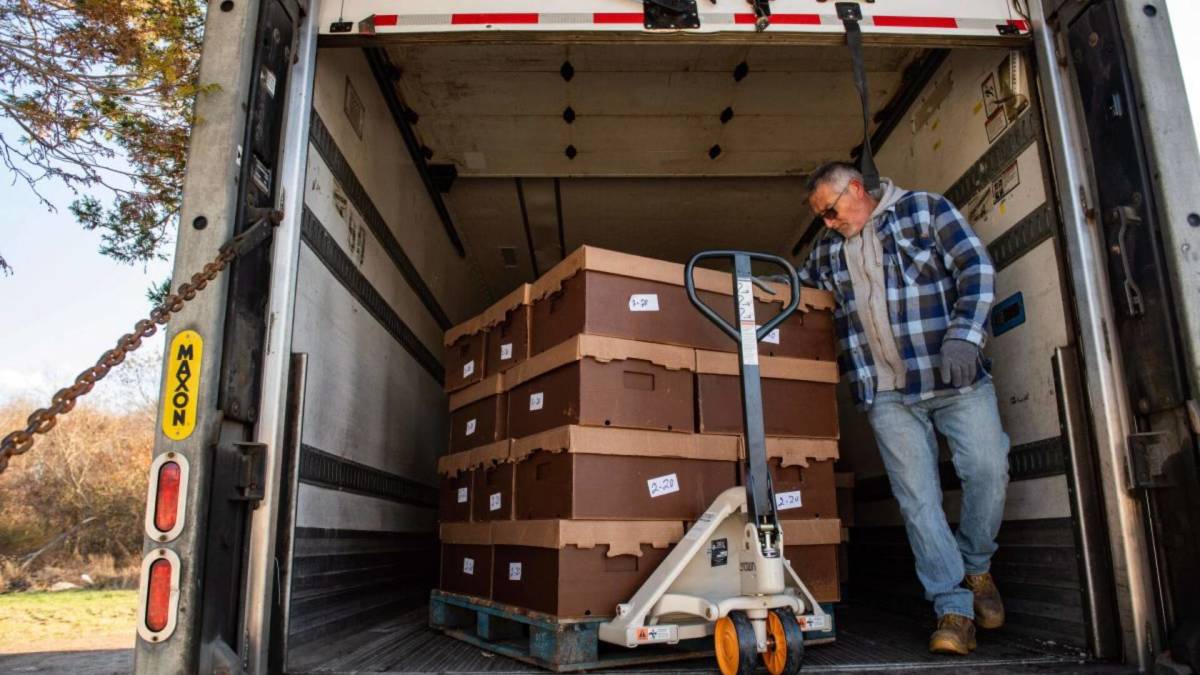It’s one thing for a fashion retailer to declare bankruptcy and close its doors, something that has been happening with alarming frequency. It’s even understandable when, say, a furniture brand goes belly up.
But a food distributor? One could argue that food is something slightly more important than a T-shirt or a couch.
Yet years of ongoing economic uncertainty have significantly damaged all kinds of businesses, including agriculture and food production and distribution companies.
💵💰Don’t miss the move: Subscribe to TheStreet’s free daily newsletter💰💵
Raw materials are more expensive, including the grains used to feed livestock and poultry, as is the fertilizer used to grow produce.
Companies have faced higher costs across every aspect of their business, from labor and transportation to energy, at a time when consumers are looking for the most budget-friendly options for their food.
For producers and distributors, this has meant trying to balance raising prices to stay profitable without losing customers.
 Food distributors have faced higher costs across every aspect of their business, including labor and transportation.
Food distributors have faced higher costs across every aspect of their business, including labor and transportation.
Image source: Getty Images
With a 2017 merger, two local food distributors became a national force
Sherwood Food Distributors was founded in 1969 as Regal Packing Co. in Detroit, focusing on meat distribution. Nearly two decades later it became Sherwood Food Distributors and by that time, had grown to be a nationwide distributor of meat, poultry, seafood, frozen foods, and baked goods.
Then in 2017, Sherwood merged with Harvest Food Distributors based in National City, Calif. The company headquarters remained in Detroit.
More closings:
- Iconic retail chain closing nearly 500 stores
- Another discount retailer closing over 1,000 stores
- Another struggling mall retail chain closing more stores
Harvest Sherwood became the largest independent wholesale food distributor in the U.S. Through a network of 14 distribution centers, the company shipped over 32 million pounds of food per week. The company delivered products to wholesalers, retailers, and hospitality businesses (especially cruise lines) nationwide.
Related: Iconic brand proposes selling assets in Chapter 11 bankruptcy
Offering a wide range of commodities and branded selections such as bakery products, deli, beef, pork, lamb, veal, poultry, seafood, and frozen foods, Harvest Sherwood met the unique needs of niche markets and food retailers of all sizes, offering marketing resources to help maximize grocery sales.
Now, citing lower demand for its food, and amid a lawsuit, Harvest Sherwood — once a $4 billion-a-year business — has filed for Chapter 11 protection.
Harvest Sherwood suing Sprouts
Harvest Sherwood Food Distributors Inc., filed for Chapter 11 in the Northern District of Texas, listing $323.5 to $558.5 million in liabilities.
Harvest Sherwood announced it would wind down operations and shift its focus to pursuing litigation, including filing claims against grocery chain Sprouts Farmers Market Inc.
In January, Seafax, an industry credit rating agency, downgraded Harvest Sherwood from “recommended” to “cautionary,” harming the company’s relationships with vendors. Then in February, Harvest began liquidating inventory and filed the lawsuit against Sprouts, aiming to recover $42 million in allegedly withheld payments.
Related: Struggling hamburger chain closing restaurants makes big change
“Industry headwinds, including rising fuel and labor costs, created significant liquidity constraints,” Chief Restructuring Officer Eric Kaup said in a statement to Law 360. “The situation worsened when Sprouts opted to self-distribute products previously handled by Harvest Sherwood.”
Harvest Sherwood employed around 1,500 people across several states but halted day-to-day operations and laid off its workforce in April.
In just over eight weeks, liquidation efforts have brought in around $140 million. According to the court filings, the company seeks to roll up $79.1 million of existing debt.
The company plans to sell its Dallas facility as part of the wind-down process.
“I believe that the commencement of these Chapter 11 cases is in the best interests of the debtors’ estates and stakeholders,” Kaup said.
Related: Veteran fund manager unveils eye-popping S&P 500 forecast
